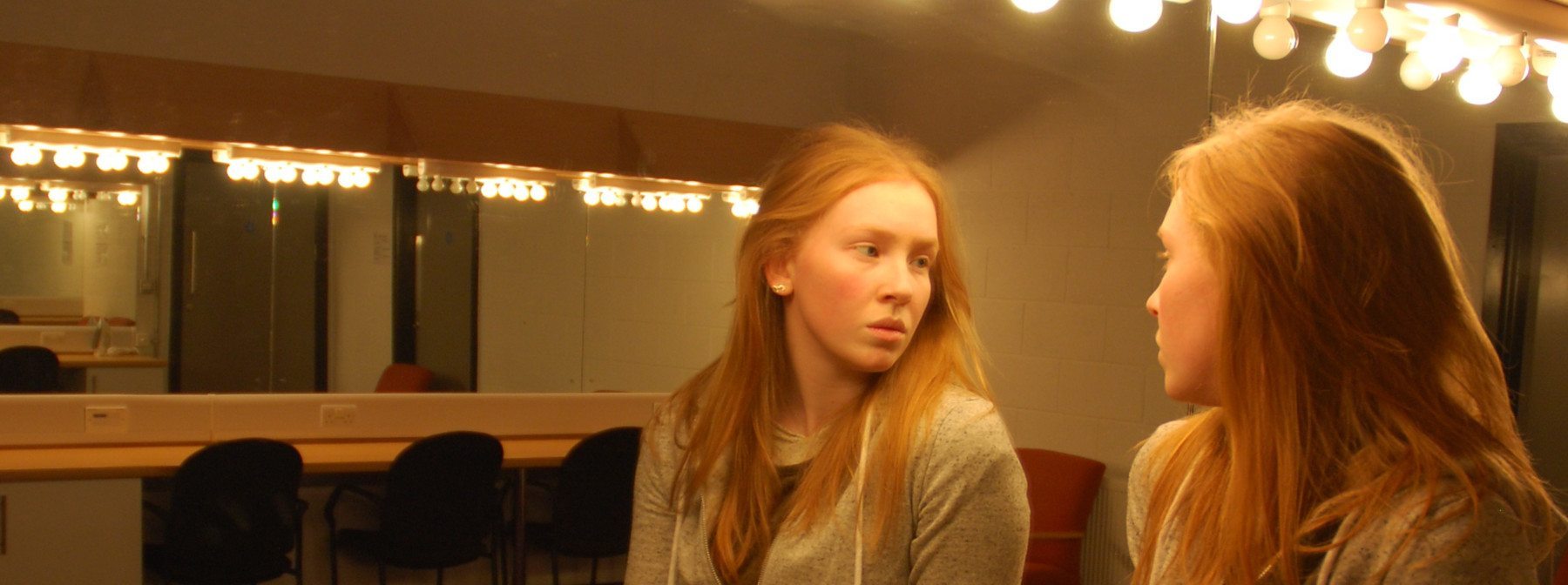Review: WUDS’ Antigone
The story of Antigone has been one of the most enduring in western culture for the last 2000 years, first bought to life by the great tragedian Sophocles and adapted continually since. Antigone’s story might then seem like a natural choice for either a student to study, or be produced on the modern stage. The WUDS production of Jean Anouilh’s adaptation, directed by Anna Himali Howard, does a fantastic job of making this ancient story relevant to the modern world.
Antigone tells the tale of the daughter of Oedipus and her determination to bury her brother, who has been denied burial by newly appointed King Creon, following civil war between Antigone’s two brothers. The backstory that surrounds some of the play’s relationships, which would have been common knowledge for the original audience, can be lost on a modern audience. This adaptation uses the Chorus, played exceedingly well by Lucy Bird, to interject on the action and help the audience understand the tangle of relationships between the characters.
In fact, the Chorus is a stroke of genius, as the role is transformed into a stage manager, overseeing the action, and making sure the tragedy continues on its predestined course. This means the Chorus manages to retain its traditional appearance of omniscience, while remaining relevant to a modern dramatic production. A particularly nice touch is that during the interval, the Chorus can still be seen at her desk, pouring over notes and sweeping the stage, staying in role even when the actors are offstage.
The play opens with a haunting violin melody accompanied by an accordion, composed by Stuart Nunn, setting up an atmosphere of tragedy from the outset. As the lights come up, we see Antigone centre stage, played brilliantly by Kate Thorogood, whose melancholy stare and natural delivery almost sees to embody the character. However, this is not an Antigone we are sure to feel sorry for, nor a woman who is by any means wholly ‘tragic’. This adaptation of the play presents her as a woman whose role in the events of the play she can arguably avoid. Her hubris is startlingly apparent throughout.
Antigone’s world is powerfully bought to life with every character she encounters. The Nurse (Rozzy Knox) provides us with some much needed comic relief and demonstrates the everyday worries of a populace, simply being concerned for Antigone’s well-being and virtue. Ismene (Vicky Watson) has similar concerns, although her fraught relationship with the troubled Antigone and her seeming acceptance of Creon’s harsh decree drive the two sisters apart. When we finally see Antigone with her fiancée, Haemon (Samuel Wightman), the sexual tension is palpable. He is notably one of the few characters that Antigone feels comfortable being close too. Despite this young love, we can never forget the undercurrent of tragedy that their encounter has and there is an uncertain sadness in every move and word.
Creon, played brilliantly by Bryony Davies, is a much more sympathetic character than might be supposed, in knowledge of the original text. Creon claims to be unhappy ruling, only taking up the position because someone needed to, but this is a case that remains questionable until the end. Followed by the obedient Page (Hari McKinnon), she exudes power and strength. These qualities show up best in her confrontation with Antigone, easily the climactic scene of the play. Both these actresses create such a charged atmosphere that is almost electric.
Antigone’s final moments are spent with the comic guard Jonas (Ali Pidsley), who helps to lighten the mood in his appearances, although there are times when this feels a little inappropriate. However, the presence of Jonas and the other guards (Amaka Ejizu and Thomas Bulpett) gives a window onto ordinary lives, trying to avoid politics and make a life for their family, rather than aspiring to the lofty ideals of any of the royal family.
As the play draws to the close, the morals of the characters become more and more confused. When the news of the death of Antigone and Haemon, delivered by the messenger (Euan Kitson), the ever-present wife of Creon, Eurydice (Maisie Sloos) finally leaves her knitting that she has been sat silently doing since the beginning of the play. Although she has been a silent presence, her departure marks a final loss for Creon, and when he returns to stage, he has become visibly older and less forceful. And yet, it remains uncertain who we should sympathise with or what moral lesson we should take away. And this is the genius of this production and the script. Rather than simply provide us with a moral lesson, they tacitly force us to consider how we would act without encouraging us either way. The play stays with you long after the lights have gone down.
For an interview with the cast and creatives of Antigone and to find out what it is like being part of a student drama production, see this article.

Comments